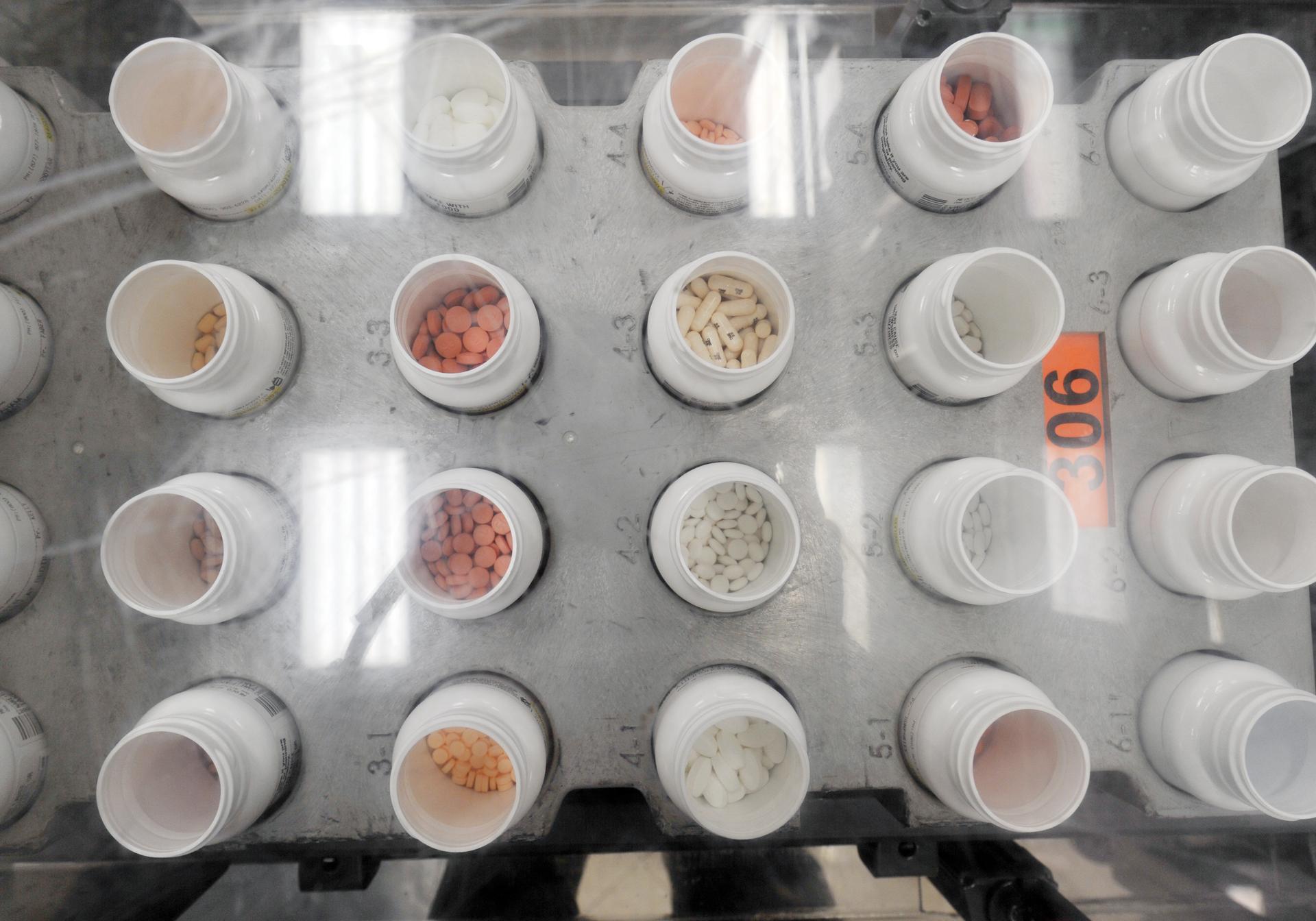USP9x: Gene discovered can ‘turn off’ pancreatic cancer
Bottles of prescription pills go through an automated packaging machine December 2, 2010 in Willingboro, New Jersey.
Aggressive pancreatic tumors may be treatable with a new class of drugs because of the discovery of the USP9x gene, according to Cancer Research UK.
Less than one in five people with pancreatic cancer survive past the first year after being diagnosed, reported BBC News. The study, published in the journal Nature, showed that the gene in question was being switched off in cancerous cells. Drugs with the potential to turn USP9x back on and stop the spread of cancer are already being tested.
Research was first conducted on mice and then on human cell lines, according to AAP. In both cases, it showed that the gene is switched off by chemical "tags" on the surface of its DNA.
"We looked in human tumor specimens and we found that [USP9x] was missing in a fraction of patients — the patients that did very poorly… the people who died the fastest," said researcher David Tuveson to News24. "Patients that had a low level of the gene expressed… they died very quickly after their operation and the patients who at the end of their life had lots of metastasis [spreading of the cancer], they had also a very low level of this protein."
More from GlobalPost: Cancer 'encyclopedia' to help personalize cancer care, scientists say
Every day, reporters and producers at The World are hard at work bringing you human-centered news from across the globe. But we can’t do it without you. We need your support to ensure we can continue this work for another year.
Make a gift today, and you’ll help us unlock a matching gift of $67,000!
